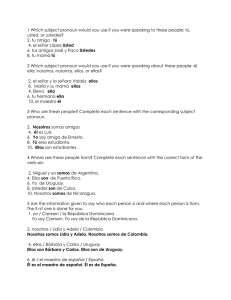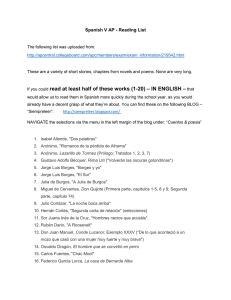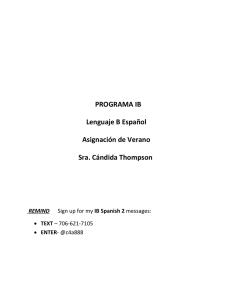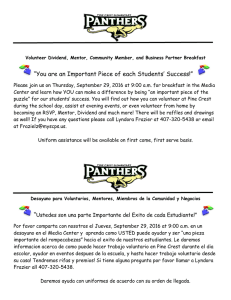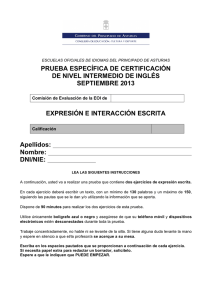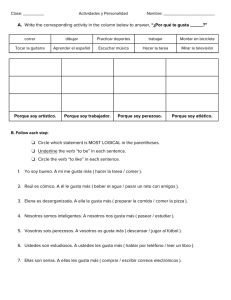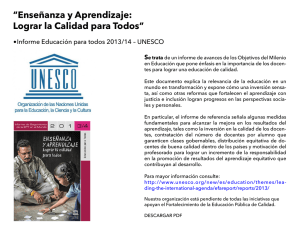Los temas del curso:
Anuncio
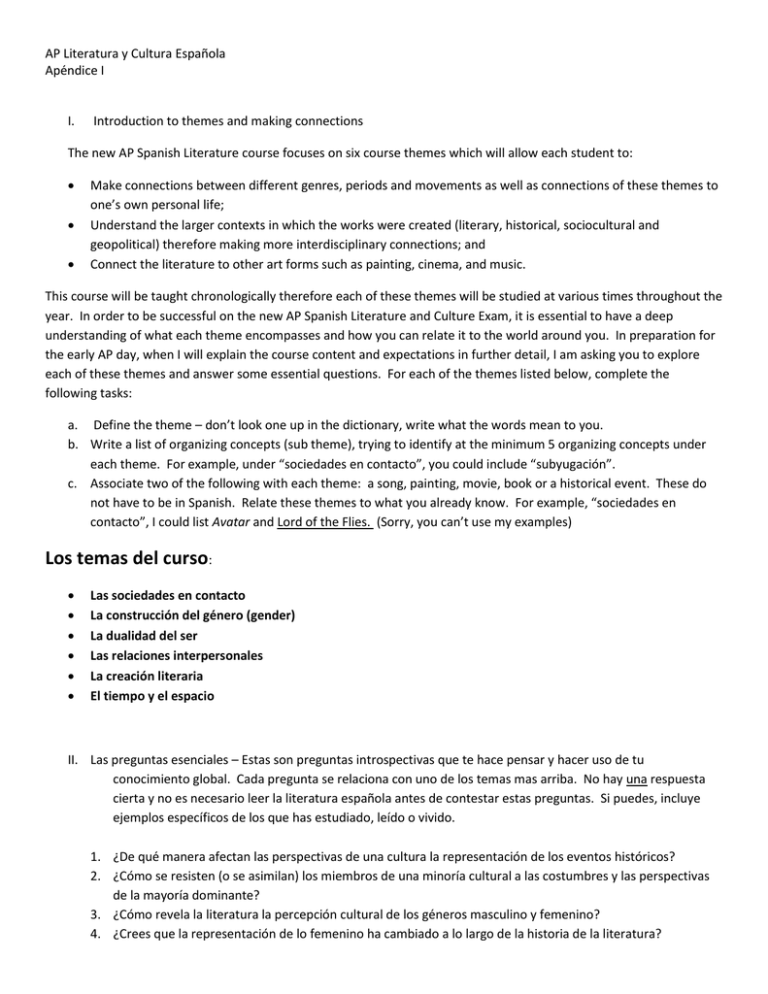
AP Literatura y Cultura Española Apéndice I I. Introduction to themes and making connections The new AP Spanish Literature course focuses on six course themes which will allow each student to: Make connections between different genres, periods and movements as well as connections of these themes to one’s own personal life; Understand the larger contexts in which the works were created (literary, historical, sociocultural and geopolitical) therefore making more interdisciplinary connections; and Connect the literature to other art forms such as painting, cinema, and music. This course will be taught chronologically therefore each of these themes will be studied at various times throughout the year. In order to be successful on the new AP Spanish Literature and Culture Exam, it is essential to have a deep understanding of what each theme encompasses and how you can relate it to the world around you. In preparation for the early AP day, when I will explain the course content and expectations in further detail, I am asking you to explore each of these themes and answer some essential questions. For each of the themes listed below, complete the following tasks: a. Define the theme – don’t look one up in the dictionary, write what the words mean to you. b. Write a list of organizing concepts (sub theme), trying to identify at the minimum 5 organizing concepts under each theme. For example, under “sociedades en contacto”, you could include “subyugación”. c. Associate two of the following with each theme: a song, painting, movie, book or a historical event. These do not have to be in Spanish. Relate these themes to what you already know. For example, “sociedades en contacto”, I could list Avatar and Lord of the Flies. (Sorry, you can’t use my examples) Los temas del curso: Las sociedades en contacto La construcción del género (gender) La dualidad del ser Las relaciones interpersonales La creación literaria El tiempo y el espacio II. Las preguntas esenciales – Estas son preguntas introspectivas que te hace pensar y hacer uso de tu conocimiento global. Cada pregunta se relaciona con uno de los temas mas arriba. No hay una respuesta cierta y no es necesario leer la literatura española antes de contestar estas preguntas. Si puedes, incluye ejemplos específicos de los que has estudiado, leído o vivido. 1. ¿De qué manera afectan las perspectivas de una cultura la representación de los eventos históricos? 2. ¿Cómo se resisten (o se asimilan) los miembros de una minoría cultural a las costumbres y las perspectivas de la mayoría dominante? 3. ¿Cómo revela la literatura la percepción cultural de los géneros masculino y femenino? 4. ¿Crees que la representación de lo femenino ha cambiado a lo largo de la historia de la literatura? 5. ¿Por qué disfruta mucho el público de las películas o libros (Matrix, Inception) que confunden el tiempo y el espacio? 6. ¿Cuál es la potencia de la literatura o sea, la palabra escrita para efectuar cambios significativos en un individuo o una sociedad? 7. ¿Por qué puede retratar la literatura los límites y las fronteras entre la realidad y la fantasía? 8. ¿Qué fuerzas existen en una sociedad y en una familia que influyen y crean conflictos en las relaciones interpersonales? 9. ¿Eres tú la misma persona pública que eres en los momentos privados o mejor, que deseas ser? Discutiremos las respuestas el primer día de clase temprana.
